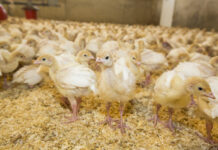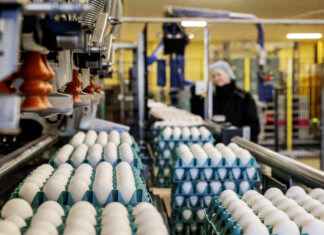
Bird flu is spreading rapidly across Europe, with the highest number of early-season outbreaks in at least a decade, reigniting fears of another crisis for the poultry sector. The surge in cases has prompted governments to tighten biosecurity measures, confine flocks indoors, and brace for potential market disruptions.
According to Reuters, the highly pathogenic avian influenza (HPAI) virus — commonly known as bird flu — caused 56 outbreaks between August and mid-October across 10 EU countries and the United Kingdom, with most cases reported in Poland, Spain, and Germany, France’s animal health surveillance agency ESA confirmed. This is the first time in ten years that outbreaks have been recorded in so many countries so early in the migratory season.
Although the total number of outbreaks remains lower than in 2022, when Europe experienced its worst-ever bird flu epidemic, the pace of transmission has alarmed both producers and authorities. “All these cases in Europe show that the virus is far from gone,” said Yann Nedelec, director of the French poultry industry group Anvol.
Poultry ordered indoors as countries react
Following the ESA’s latest report, Belgium and Slovakia confirmed their first cases of the season, prompting Belgium to order all poultry to be kept indoors. In France, two new outbreaks were detected this week, leading the Ministry of Agriculture to require the confinement of all farmed birds. Officials noted that similar orders were issued later in previous years — in November 2024 and December 2023 — underscoring the early onset of this year’s wave.
The World Health Organization (WHO) reiterated that the risk to humans remains low, as most infections occur in individuals with direct contact with infected animals. However, the organization warned that the virus’s increasing spread to mammals requires close monitoring.
France continues vaccination campaign
France has launched its third nationwide vaccination campaign targeting farm ducks, becoming the first major poultry exporter to implement such a measure on a national scale. Authorities credit the program with helping to curb outbreaks and stabilize production in recent seasons.
A global concern
Beyond Europe, the impact of bird flu continues to ripple across global markets. In the United States, more than 180 million birds have been culled since the start of the latest wave, affecting egg prices and leading to infections in dairy cows and humans, according to Reuters. Brazil, the world’s largest poultry exporter, reported outbreaks earlier this year but has since regained bird flu-free status. In Asia, Japan confirmed its first case of the season this week.
The rapid early spread of avian influenza underscores the persistent global challenge of managing one of the most devastating diseases in modern poultry production — one that continues to test the resilience of farmers, veterinarians, and policymakers alike.
Source: Reuters

















